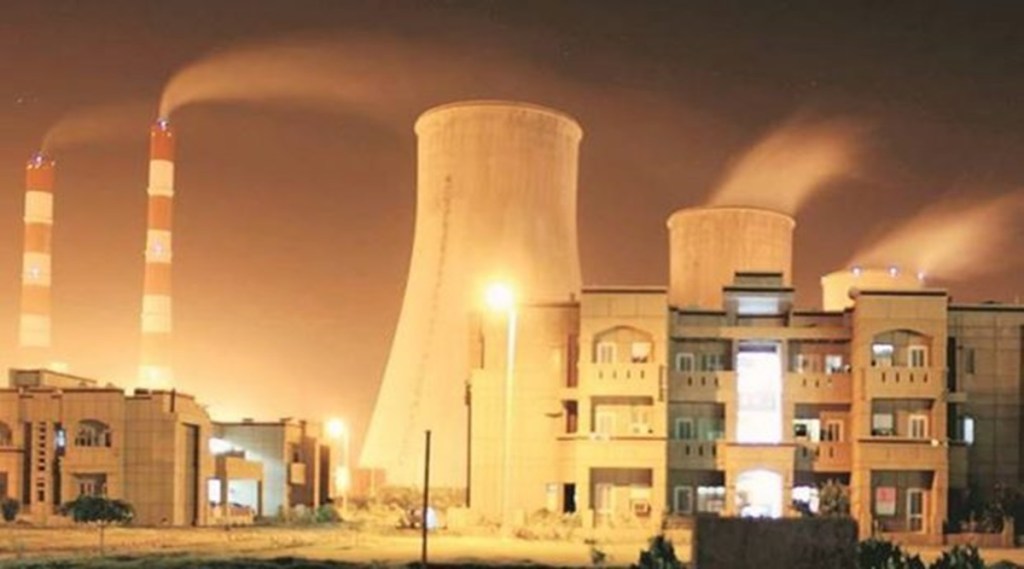Imported coal-based power plants with a combined capacity of over 10,000 megawatt (MW) continue to operate at marginal capacities, and some units even lie closed, at a time the country wants to generate more electricity and meet its rising post-pandemic power demand. This is because these units owned by the Tata, Adani and Essar groups are still to realise the benefit of ‘compensatory tariffs’ granted to them by the Supreme Court in an April 2017 order, appreciating the unforeseen spike in imported (Indonesian) coal prices during the period since 2010.
The companies concerned — Tata Power, Adani Power and Essar Power — currently have combined accumulated losses of over Rs 30,000 crore. The tariff formula under the Change in Law clause upheld by the apex court, if implemented, would have reduced the losses and improved the viability of these units, but state discoms concerned haven’t complied yet. At one point, the three power developers had separately even offered to sell their 51% stakes in the stressed projects for a nominal sum of Rs 1 to the discoms, but even this hasn’t worked out.
In 2018, a high-powered committee set up by the Gujarat government recommended changes to both parts of the tariff — fixed cost and the variable cost to provide for the compensation. As per this, the fixed cost of the project was to be reduced by 20 paise per unit after lenders take a haircut. The fixed cost is used to pay debt, while variable cost is return on investment for the developers. The energy charge (variable cost) was to be revised monthly and was capped at $110 per tonne for 6322 kcal/kg. Also, profits from coal mines were to be adjusted against the fuel under-recoveries for companies having coal mines in Indonesia.
Gujarat discom GUVNL had entered into an agreement with Adani power at the revised rates, after the central electricity regulator approved the new tariff plan. But the Central Electricity Regulatory Commission (CERC) asked Tata Power to seek approval from four other discoms — Punjab, Haryana, Rajasthan and Maharashtra — for the revised tariff plan.
GUVNL also agreed to the tariff plan with Tata Power. But later in 2019, the discom dropped the plan with all the developers citing falling imported coal prices and agreed to enter into supplemental tariff plan based on case-to-case basis.
Praveer Sinha, managing director of Tata Power, told FE the company is working on a solution with the Gujarat discom where the entire coal price will become pass-through. “The decision is expected in month,” Sinha said.
Tata Power and Adani Power have over 4,000-MW power projects each in Mundra, Gujarat, while Essar Power owns a 1,200-MW power project in Salaya, Gujarat. All these plants run on imported coal and have suffered accumulated losses ever since Indonesian government aligned the coal prices to international prices. Developers had bid out aggressively for these projects on guarantee of cheap fuel supply from Indonesia. However, the change in law provision made these projects unviabe and companies pleaded courts to provide compensatory tariffs to overcome the losses.
Tata Power Mundra has accumulated over Rs 12,232 crore loss as of March 2021 and continues to incur loss due to under recovery of fuel cost. In Q3FY22 the ultra mega power unit’s loss grew four-fold on year to Rs 1,167 crore, while the fuel under recovery stood at Rs 0.16 paise/kg of imported coal.
Adani Power Mundra’s accumulated losses are also above Rs 12,000 crore. In FY20, the company incurred a loss of Rs 1,426 crore. The company has delisted from the stock exchanges in 2020.
In March 2021, Essar Power’s Salaya project stopped power supply to GUVNL, with which it had 25 years supply contract, after it sat on the supplemental tariff plan for over two years. The company is also expected to have incurred a loss of over Rs 7,000 crore on the project. The project is lying idle since March 2021. Rupesh Sankhe, vice-president and power analyst at Elara Securities, said, “Companies like Tata Power consider it better to shut the units and bear a penalty of `600 crore from discoms for break in supplies, rather than bearing a higher fuel cost of Rs 2,000 crore.”


